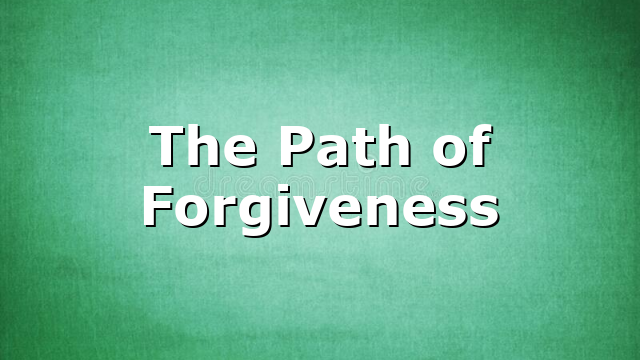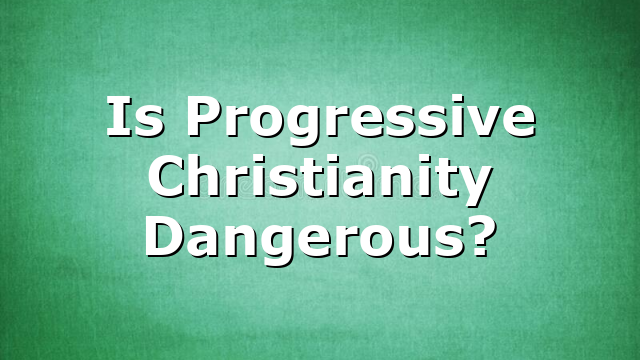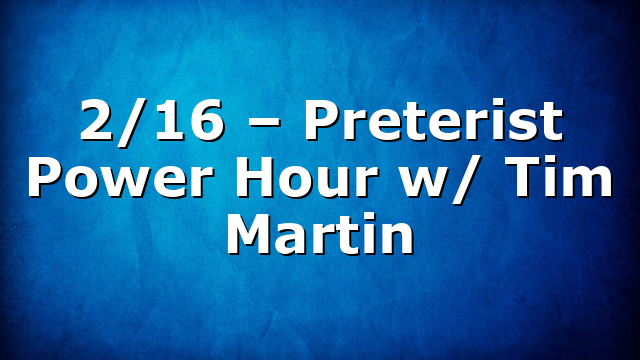
The Path of Forgiveness
Editor’s note: The following article is by Don E. Miller, Assemblies of God Gulf Area executive presbyter. It is part of an ongoing series of articles by AG executive leaders.
Over the course of pastoring the same church for 25 years, my wife, Vicki, and I often found ourselves ministering to individuals who had experienced severe abuse; physical, emotional, and sexual. The stories were horrendous and difficult to hear. Yet, we had the privilege of watching as God brought miraculous inner healing to these people. One lady had never told her three young children that she loved them because she felt incapable of conveying such emotions due to her past. But as God began to bring newness from inside out, she could say to them, “I love you.” Immediately, the children began to blossom as they experienced the expressed love of their mother.
Each person with whom we worked walked a similar path to wholeness. Somewhere in the process, they had to learn the steps to forgiveness. The wrong they had suffered was cruel and not their fault. Yet, they could not move forward without forgiving the one (or sometimes many) who had wronged them. The words of Jesus had to be heeded:
“But if you do not forgive others their sins, your Father will not forgive your sins,” (Matthew 6:15, NIV).
Forgiveness is often challenging due to a misunderstanding of what it really is. To forgive does not mean that what the person did was OK. To forgive does not mean that you must now trust the one who wronged you. Forgiveness is granted, but trust is earned. In reality, forgiveness simply means, “I will no longer carry the responsibility to see that you pay for what you have done to me. I release you of debt to me.”
We cannot wait for someone to ask for forgiveness before we forgive. The offender may never ask. Often, while we are struggling with unforgiveness, bitterness, pain, and even hatred, the other person may go on their way seemingly unfazed. To forgive is as much a gift to the forgiver as it is to the forgiven.
As we journeyed with those recovering from abuse, we discovered an effective four-step plan to forgive:
1. Admit that something was done to you and that it was wrong.
Without this admission, hurts can stay buried in our hearts. The past actions of others are still affecting every facet of our lives often undetected and unrealized. This step is painful because the Holy Spirit will bring to our remembrance moments which our mind has attempted to forget. Yet, without this realization, the process cannot begin.
2. Ask God to forgive you for your unforgiveness.
No matter what has happened to you, God cannot excuse your unforgiveness; it is sin. Again, this step begins to open the pathway for God’s grace and healing to flow freely in your life.
3. Choose to forgive.
Forgiveness is much like love. Love is not a feeling, but a choice. Yes, the feelings will often be there or come eventually. But we choose to love. In like fashion, we cannot wait until we feel like forgiving. We actively decide to release others from their debt to us.
This step often involved some type of contact with the wrongdoer. Sometimes, people walking through the forgiveness process would speak directly with the one who offended. At times, they wrote a letter expressing their feelings. The letter was not always delivered, but the written expression itself played a part in the healing process. One lady had experienced unspeakable abuse by her husband, who had died. She went to his graveside and spoke as if he were there: “I remember what you did to me. But I choose to forgive you.” She walked away with a great burden lifted. Other times, it was impossible to have any direct contact with the one who had offended. However, as the victim expressed his or her choice to forgive in writing or audibly to another person, the chains of unforgiveness fell away.
4. Walk in the forgiveness.
Forgiveness is seldom a onetime act. You choose to forgive. But when you wake up the next morning, the feelings of anger may still linger. These feelings may even be magnified as you walk through the experience of remembering what was done to you. At that moment, with the help of the Holy Spirit, you choose to continue to walk in forgiveness: “I have decided to forgive that person for what he/she did. I refuse to pick it up today.”
To those to whom we ministered, the list of offenses was long. Yet, one by one, we walked with the individuals through the steps of forgiveness regarding specific persons and actions of hurt. Each time the choice of forgiveness was made, another shackle fell off, another layer of pain was shed. All along the way, God worked supernaturally to give them the power to forgive.
Don’t walk the path of forgiveness alone. Find a pastor, a Christian counselor, or a mature follower of Christ to go with you. Though the journey may be painful, the end product is well worth the cost.
Some of the greatest memories for Vicki and me of our pastoral years are those times when we saw individuals walk the path of forgiveness. Again and again, we saw those overcome and overwhelmed with shame, unforgiveness, and bitterness set free to really live again! Overwhelming joy replaced the pain and anguish on their faces.










Leave a Reply